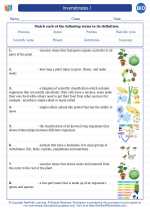Temperature
Temperature is a critical environmental factor that influences the physiological processes of organisms. Most organisms have a range of temperatures within which they can function optimally. Extreme temperatures can denature proteins and disrupt cellular function, leading to decreased survival rates and reproductive success.
Water Availability
Water is essential for life, and its availability can greatly impact the distribution and behavior of organisms. Terrestrial organisms have evolved various mechanisms to cope with water scarcity, while aquatic organisms are highly sensitive to changes in water quality and availability.
Sunlight
Sunlight is the primary source of energy for most ecosystems. The intensity and duration of sunlight can influence the rate of photosynthesis in plants and the behavior of diurnal organisms. Light availability also affects the distribution of plants and the productivity of ecosystems.
Soil Composition
Soil composition, including factors such as pH, nutrient levels, and texture, can strongly influence the types of plants that can grow in a particular area. It also affects the availability of essential nutrients for plant growth and the types of organisms that can thrive in the soil.
Study Guide
- Define abiotic factors and provide examples.
- Explain the impact of temperature on enzyme function in living organisms.
- Discuss the adaptations of desert plants to cope with water scarcity.
- Compare and contrast the effects of light availability on plants in different ecosystems.
- Describe how soil pH can affect plant nutrient uptake.
- Research a specific organism and analyze how it is adapted to the environmental conditions in its habitat.
◂Biology Worksheets and Study Guides High School. Invertebrates
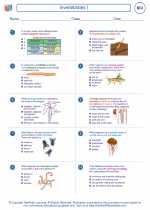
 Worksheet/Answer key
Worksheet/Answer key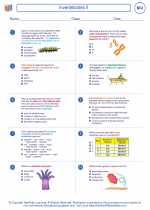
 Worksheet/Answer key
Worksheet/Answer key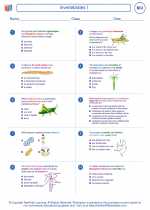
 Worksheet/Answer key
Worksheet/Answer key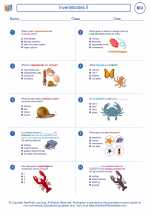
 Worksheet/Answer key
Worksheet/Answer key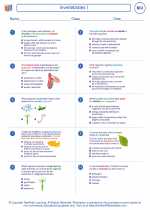
 Worksheet/Answer key
Worksheet/Answer key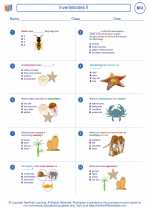
 Vocabulary/Answer key
Vocabulary/Answer key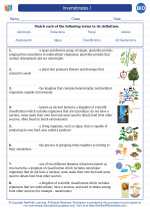
 Vocabulary/Answer key
Vocabulary/Answer key
 Vocabulary/Answer key
Vocabulary/Answer key